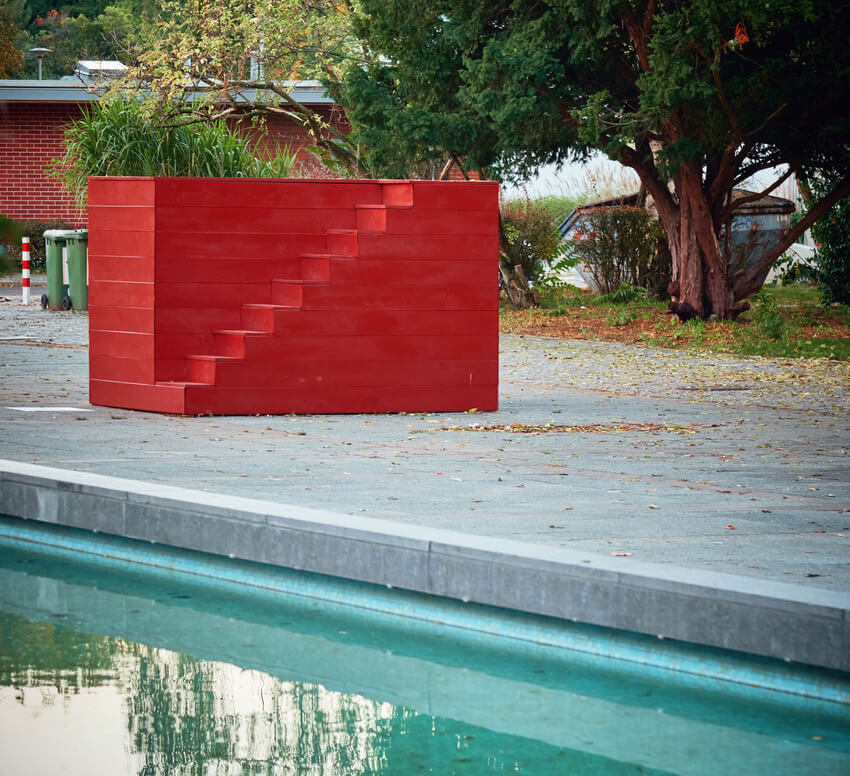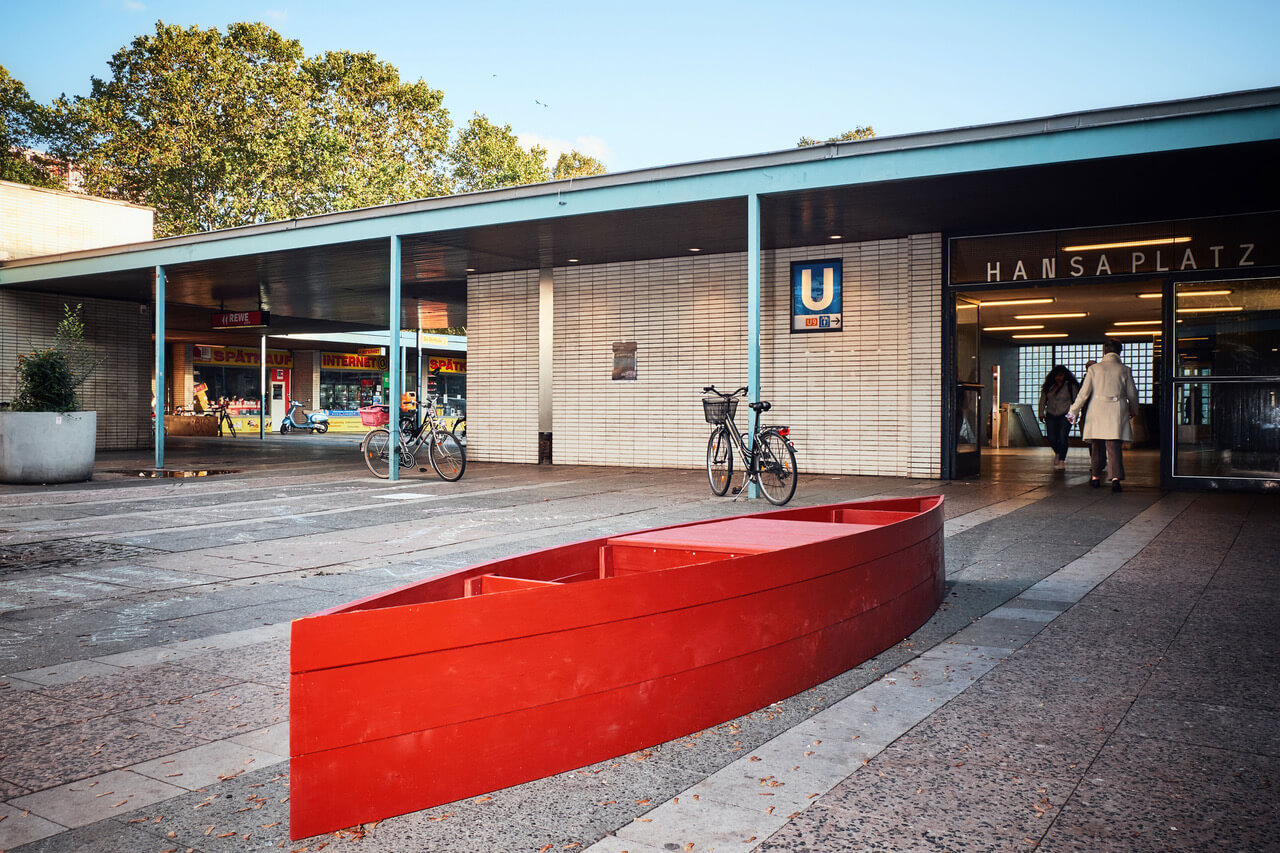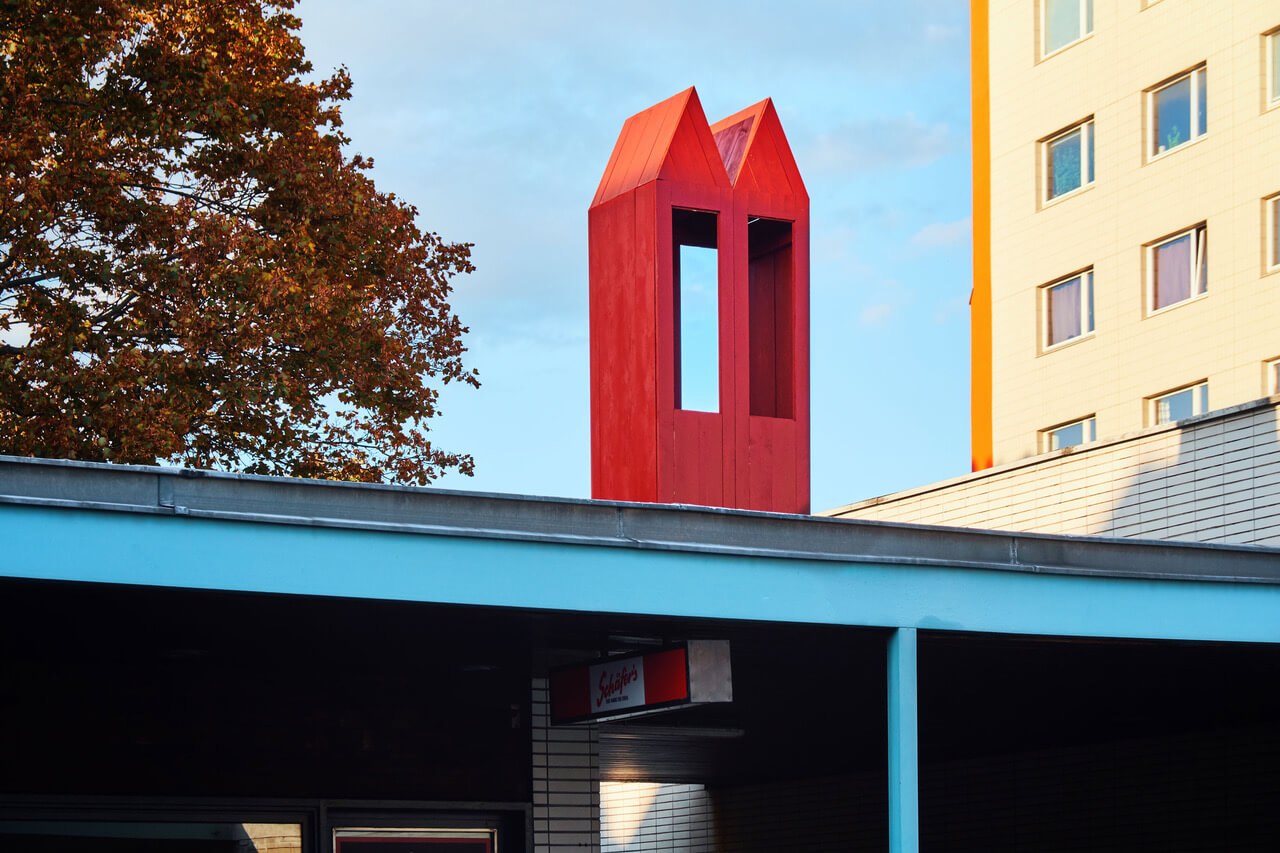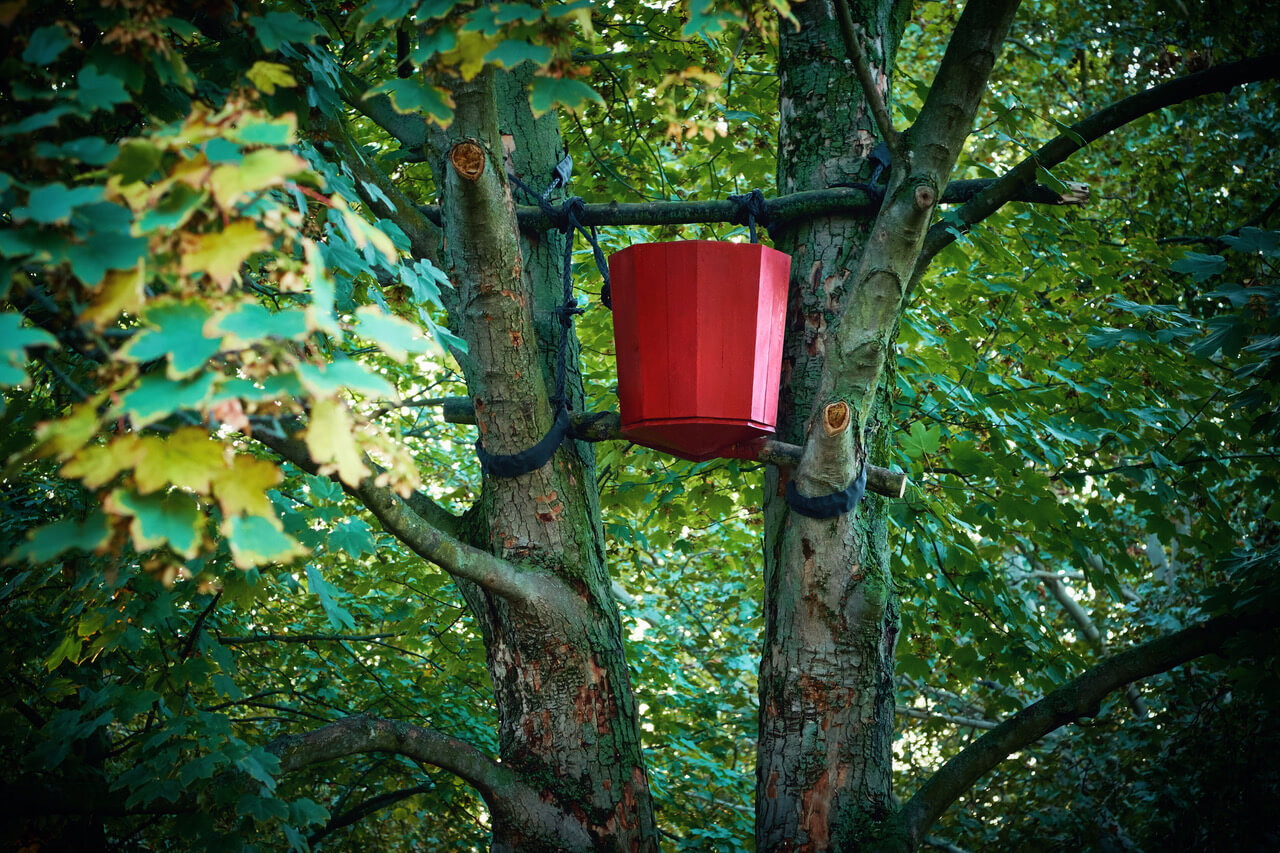Art in Public Space, 2019
4 wooden archetypical objects, Public program
Winning Project of Art Competition -Art in Urban Space at Hansaplatz-, Berlin, Germany
| / |
The history of the Hansaviertel intersects with the narrative of upheaval and new beginnings and is exemplary for a part of Germany’s 20th century history: Between 1933 and 1945, a large part of the population living here was disenfranchised, robbed and forced into exile. Their apartments were taken over by others. With the old neighbourhood destroyed in the war, the new Hansaviertel, built in 1957, was not only praised for its formal conception: the settlement was a symbol of the "free world" and an ambassador for the ideals of liberalism and the Western World’s social system.
Esra Ersen and Boris Borowski use this setting as a starting point for their work Zahiri and Batini. In Arabic, zahiri signifies the visible, and batini the non-visible, the duality of external visible meaning and inner, invisible meaning. The two artists placed four wooden objects of archetypal architectures ˗̶ a house, a boat, a pulpit and a tower - at four sites on Hansaplatz. The objects are called Makam, the Arabic word for a "place where something is built". It is a name for a place of spiritual presence or for the station of a pilgrimage, or for an official residence. The archetypal forms of the four architectures allow different readings and elude any unambiguous attributions.
Among the four objects, which temporarily created a new network of meanings at the Hansaplatz, four scientists spoke about different epochal changes. The (cross-)cultural and historical comparison opened up the intellectual space of the Hansaviertel and questioned assumptions otherwise taken for granted. At the Makam House, the archaeologist Dr. Hans-Georg K. Gebel talked about the Neolithic and its powerful historical continuities. At the Makam Boat, the theologian Prof. Rainer Kampling addressed the Council of Nicaea and its effects until the present day. At the Makam Pulpit, author Sina Ahlers highlighted links between the 30-year war, Bertold Brecht's character "Mutter Courage" and the Hansaplatz. At the Makam Tower, the Islamic scholar Stefan Weidner talked about an alternative history of the West-Eastern engagement with Modernism and Post-Modernism and its destructive aspects, which are currently coming to light.
Lectures held: A perspective from the Neolithic Period - Dr. Hans- Georg K. Gebel, archaeologist; The ecumenical coun- cil of Nicaea - signs of an epochal change - Prof. Dr. Rainer Kampling, theologian; Mother Courage at the Hansaplatz - Sina Ahlers, author; Angels of History - Stefan Weidner, Islamic Studies scholar



